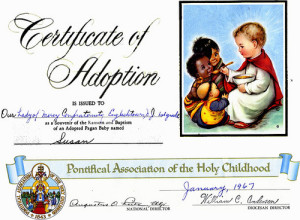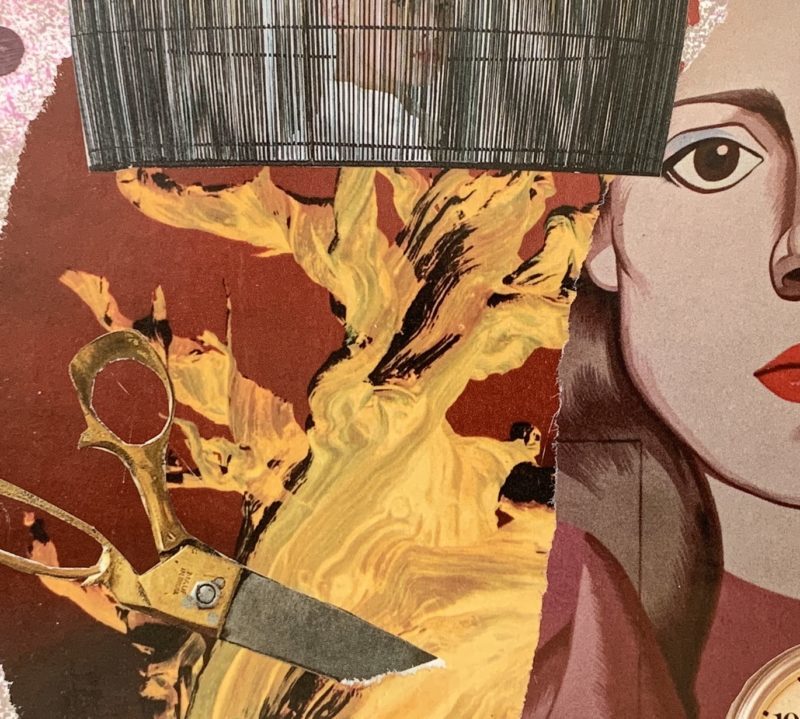
Some examples
It’s National Adoption Month. And, of course, the topic of crowd funding for adoption has popped up here and there and everywhere.
“Pagan babies” in the 1960s
I went to Catholic grade school in the 60s. It was customary to forego one’s morning carton of milk, and instead give your pennies to the “pagan baby” fund. When we had raised enough money, the class could “adopt” a baby from Africa. These babies were not really removed from their families, but were baptized and given Christian names. We children voted on the names after Sister wrote the suggestions on the blackboard. After a show of hands, Sister would count up the hash marks next to each name.
As a result, some weeks later a certificate with the baby’s new name would arrive. We would display it in our classroom. I have no idea if the children were really called Christine Mary, or David John, or whatever Christian names we chose. I don’t know if the money was an honorarium for the missionary priest who performed the baptism. Or if the money was used to bestow gifts on the child’s family as an incentive for converting to Catholicism, or if it bought fancy white baptismal gowns, or what.
This practice seemed unbelievable when I recalled it as a grown-up former Catholic. It felt archaic and colonial, full of presumption and harm. Crowd funding for infant adoption makes the pagan baby racket feel like child’s play.
Funding for family preservation
How about some funding for family preservation? I recently learned about this organization. Their website is full of information that will blow your mind. Here’s a tiny taste. In the excerpt below, the word care means being removed from their families and placed in foster care.
“Compared to white children, based on child population estimates:
– American Indian children were 17.6 times more likely to experience care.
– Children identified as two or more races were 4.8 times more likely to experience care. (59.2 percent identified at least one race as African-American/Black and 56.0 percent identified at least one race as American Indian.)
– African-American children were over 3.1 times more likely to experience care.”
